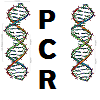Creation or Evolution?, Which do you believe in? |
Debate Rules
Here are the general forum rules that you must follow before you start any debate topics. Please make sure you've read and followed all directions.
- Topics are not to bash others.
- Immature behaviors/comments will not be tolerated.
- Please remember, not everyone thinks like you. People have different ways of thinking and different perspectives. Let's respect each other's thoughts and responses.
- PLEASE, search before making new topics--especially popular topics like "God" and "Abortion" etc.
- PLEASE, read through the thread or at least a couple pages before posting. We have to maintain a certain level of maturity in here.
  |
 Feb 26 2006, 02:51 AM Feb 26 2006, 02:51 AM
Post
#751
|
|
 Senior Member       Group: Human Posts: 2,817 Joined: Feb 2006 Member No: 381,065 |
|
|
|
|
| *disco infiltrator* |
 Feb 26 2006, 06:46 AM Feb 26 2006, 06:46 AM
Post
#752
|
|
Guest |
Whyyyyyyyyyy
|
|
|
|
 Feb 27 2006, 06:46 PM Feb 27 2006, 06:46 PM
Post
#753
|
|
 no u     Group: Member Posts: 135 Joined: Sep 2005 Member No: 237,372 |
I "believe" in evolution much in the same way I "believe" that the acceleration of a falling object due to gravity is 9.2 m/s^2 and how I "believe" in water being wet.
|
|
|
|
| *xcaitlinx* |
 Feb 28 2006, 05:28 PM Feb 28 2006, 05:28 PM
Post
#754
|
|
Guest |
evolution---because i don't believe in God and i think it's physically impossible for "him" to create human life. plus, the evidence that evolution exists is much greater than that of creation.
|
|
|
|
 Mar 7 2006, 12:24 PM Mar 7 2006, 12:24 PM
Post
#755
|
|
|
Senior Member      Group: Duplicate Posts: 459 Joined: Nov 2005 Member No: 308,469 |
Creation.
Its like gravity. It exists, and it doesnt care if you believe in it, or not. So jump off the 2nd floor and believe you can fly, cause gravity will have the last laugh. |
|
|
|
| *disco infiltrator* |
 Mar 7 2006, 05:03 PM Mar 7 2006, 05:03 PM
Post
#756
|
|
Guest |
OK, verbal warnings to the both of you above me for completely disregarding the previous 31 pages of arguments.
|
|
|
|
 Mar 12 2006, 02:52 PM Mar 12 2006, 02:52 PM
Post
#757
|
|
 portami via      Group: Member Posts: 467 Joined: Apr 2005 Member No: 132,187 |
Evolution. There is actual scientific evidence that supports this theory.
I believe that the Creation story is not literal, but instead is full of symbolism that is connected to advice for living a good life. I have other reasons, but they're mostly connected to religion, so I'll spare you. |
|
|
|
| *disco infiltrator* |
 Mar 13 2006, 05:12 PM Mar 13 2006, 05:12 PM
Post
#758
|
|
Guest |
DO NOT SPARE TUIHTUIHTUI!!!!
|
|
|
|
 Mar 13 2006, 05:27 PM Mar 13 2006, 05:27 PM
Post
#759
|
|
 cB Assassin         Group: Official Member Posts: 10,147 Joined: Mar 2004 Member No: 7,672 |
For one to evolve, one must be created....
|
|
|
|
 Mar 13 2006, 05:40 PM Mar 13 2006, 05:40 PM
Post
#760
|
|
 3,565, you n00bs ain't got nothin' on me.        Group: Official Member Posts: 3,761 Joined: Feb 2004 Member No: 3,565 |
|
|
|
|
| *disco infiltrator* |
 Mar 13 2006, 05:57 PM Mar 13 2006, 05:57 PM
Post
#761
|
|
Guest |
Wow, OK, seriously.
Read the thread. |
|
|
|
 Mar 13 2006, 06:16 PM Mar 13 2006, 06:16 PM
Post
#762
|
|
 3,565, you n00bs ain't got nothin' on me.        Group: Official Member Posts: 3,761 Joined: Feb 2004 Member No: 3,565 |
|
|
|
|
| *digital.fragrance* |
 Mar 14 2006, 04:27 PM Mar 14 2006, 04:27 PM
Post
#763
|
|
Guest |
Creation
You many think Evolution has all the answers, but they have absolutely none for plants. Have you ever realized all evolutionists talk about with any confidence is always animal related? They never have come up with a really 'good' for an answer to plants... And to make this clear - neither belief can be proved through scientific expirementation (my evolutionary Botany book actually says that, too.) |
|
|
|
| *disco infiltrator* |
 Mar 14 2006, 04:50 PM Mar 14 2006, 04:50 PM
Post
#764
|
|
Guest |
Gregor Mendel much? There's plenty of other examples, but Gregor Mendel is one of the main evolutionary thinkers you learn about in a freshman Biology course, and lower, in fact, and all of his studies are based on botany. |
|
|
|
 Mar 14 2006, 11:33 PM Mar 14 2006, 11:33 PM
Post
#765
|
|
|
dripping destruction        Group: Staff Alumni Posts: 7,282 Joined: Jun 2004 Member No: 21,929 |
Creation You many think Evolution has all the answers, but they have absolutely none for plants. Have you ever realized all evolutionists talk about with any confidence is always animal related? They never have come up with a really 'good' for an answer to plants... And to make this clear - neither belief can be proved through scientific expirementation (my evolutionary Botany book actually says that, too.) the reason textbooks say this is so they can be approved in christian centered states, like alabama. |
|
|
|
 Mar 14 2006, 11:42 PM Mar 14 2006, 11:42 PM
Post
#766
|
|
 cB Assassin         Group: Official Member Posts: 10,147 Joined: Mar 2004 Member No: 7,672 |
|
|
|
|
| *digital.fragrance* |
 Mar 15 2006, 07:09 AM Mar 15 2006, 07:09 AM
Post
#767
|
|
Guest |
the reason textbooks say this is so they can be approved in christian centered states, like alabama. Funny thing is, it contradicts itself in the next paragraph by saying, "Evolutionary ideas can be proven expirementally." I just laughed. I thought 'At least get your thoughts straight.' My Botany teacher even pointed it out and laughed... it is funny, you have to admit. Yeah, I suppose they would do that to get approved, but my other science books have not gone to the trouble to do that. For Botanists, it would be hard to be an evolutionist... there isn't any sufficient hypothesis as to how plants developped - so my guess is he is very confused. kinda funny... When my book tried to explain evolution through plants, it couldn't stay on topic. It kept shifting back to animals to prove it's point...... It's a book about plants..... When I saw that they kept saying "This might of happened" and "This has a possibility" all it told me was 'I don't know, but this sounds good.' The reasons weren't organised in any fashion (but then again, the ideas were so abstract that they couldn't have been), and they didn't make any sense according to current plant life. Botany is one aspect where evolutionary theory is sorely lacking. |
|
|
|
 Mar 15 2006, 10:29 AM Mar 15 2006, 10:29 AM
Post
#768
|
|
 in the reverb chamber.        Group: Staff Alumni Posts: 4,022 Joined: Nov 2005 Member No: 300,308 |
Botany is one aspect where evolutionary theory is sorely lacking. I'm not so sure that is true. The modern evolutionary synthesis explains both the evolution of animals and plants. Out of the tons of dozens of examples of observed speciation over the last century, more than half are examples of plant speciation. The mechanisms at work when an animal evolves are more alike than different when compared to those mechanisms at work in a plant. Gregor Mendel, "The Father of Genetics" was mentioned. From his law of inheritance was born genetics. His laws were based off of the study of inheritance of traits in pea plants. The foundation of genetics and the largest contribution to a modern evolutionary synthesis was invoked by a man's study of heredity in plants. Just as Gregor Mendel's findings were being revisited and understood as revolutionary to evolutionary theory in the 20th century, a man named George Ledyard Stebbins, Jr. was born. Mr. Stebbins would go on to be considered one of the most important botanists of the 20th century, partly because of his focus on explaining evolution in plants. His most recognized publications was entitled Variation and Evolution in Plants and is a detailed, scientific investigation into the subject. If anything, the discovery of heredity, and the amount of observed speciation in plants is one aspect of evolutionary theory which has become a near driving force. I can't see the same weakness as yourself. |
|
|
|
| *swtcherriipie* |
 Mar 15 2006, 10:36 AM Mar 15 2006, 10:36 AM
Post
#769
|
|
Guest |
I guess my cristian morals and backround have always taught me that we were created by god but there is in fact no evidence. Then again you cant see god but you know he's there, It just one of those things you just know but arent sure of.
|
|
|
|
 Mar 15 2006, 10:41 AM Mar 15 2006, 10:41 AM
Post
#770
|
|
 in the reverb chamber.        Group: Staff Alumni Posts: 4,022 Joined: Nov 2005 Member No: 300,308 |
|
|
|
|
| *digital.fragrance* |
 Mar 15 2006, 03:37 PM Mar 15 2006, 03:37 PM
Post
#771
|
|
Guest |
I'm not so sure that is true. The modern evolutionary synthesis explains both the evolution of animals and plants. Out of the tons of dozens of examples of observed speciation over the last century, more than half are examples of plant speciation. The mechanisms at work when an animal evolves are more alike than different when compared to those mechanisms at work in a plant. Gregor Mendel, "The Father of Genetics" was mentioned. From his law of inheritance was born genetics. His laws were based off of the study of inheritance of traits in pea plants. The foundation of genetics and the largest contribution to a modern evolutionary synthesis was invoked by a man's study of heredity in plants. Just as Gregor Mendel's findings were being revisited and understood as revolutionary to evolutionary theory in the 20th century, a man named George Ledyard Stebbins, Jr. was born. Mr. Stebbins would go on to be considered one of the most important botanists of the 20th century, partly because of his focus on explaining evolution in plants. His most recognized publications was entitled Variation and Evolution in Plants and is a detailed, scientific investigation into the subject. If anything, the discovery of heredity, and the amount of observed speciation in plants is one aspect of evolutionary theory which has become a near driving force. I can't see the same weakness as yourself. Yes, Gregor Mendel extensively contributed to science with his hybridization of pea plants - it's been a great milestone for botany, that is for sure. Genetics has gone leaps and bounds since him - he was a great mind. Evolutionists use genetics as the backbone to their arguement, and it is most definitely understandable. There was one crucial hole that I found in their reasoning, however - the increasing complexity and differentiation of plants. Straight from the textbook (Stern, Kingsley R., Introductory Plant Biology ed. 7, California State University. WCB McGraw-Hill; 1997) - QUOTE Hybirdization seldom occurs naturally, but when it does take place, the hybrids may be significant or important in evolutionary change, depending on how the characteristics of the parents were combined. Okay, this makes some sense... but look at the italicized words (added by me). At least to me, I'm not going to play the odds at "may," "seldom," and "depending." But ignoring that, hybridization often produces sterility. The odds that it may take place and that it wouldn't produce sterility is too steep.The other tenet to botanists' theories is reproductive isolation. QUOTE If new genes are produced in a freely interbreeding population, they will gradually spread... and the whole population will change in time. If? I don't know if this is just me, but it sounds like they don't know for sure if this even occurs... But I laughed again - the first example was with animals. Besides that, the examples they gave were certainly valid, but they never connected it with a solid fact. For lack of better words ... All it seemed to be was guessing for the sake of it. Botanists go onto explain isolationism in regards to different genes being limited to specific locations as a cause to the subtle but yest stark differences in certain plants. Sounds good to me, but this paragraph was the clincher... QUOTE Even if pollen from one species is placed within the stigma of another species, however, fertilization frequently does not follow because the sperm is chemically or mechanically prevented from reaching the egg. Other isolating mechanisms include failure of hybrids to survive or breed and the failure of embryos to develop. Once again.... guessing and odds. I just don't like basing my though processes on that. |
|
|
|
 Mar 15 2006, 04:01 PM Mar 15 2006, 04:01 PM
Post
#772
|
|
 oooh yeah.       Group: Member Posts: 1,333 Joined: Feb 2006 Member No: 376,533 |
Gregor Mendel much? There's plenty of other examples, but Gregor Mendel is one of the main evolutionary thinkers you learn about in a freshman Biology course, and lower, in fact, and all of his studies are based on botany. Isn't he the Father of Genetics? I'm confudizzled. |
|
|
|
 Mar 15 2006, 05:02 PM Mar 15 2006, 05:02 PM
Post
#773
|
|
 in the reverb chamber.        Group: Staff Alumni Posts: 4,022 Joined: Nov 2005 Member No: 300,308 |
Once again.... guessing and odds. I just don't like basing my though processes on that. You seem to only be examining the possibility of hybridization. Hybridization does not have to occur, in plants or animals, for evolutionary change to occur. Genetic variation from mutation and natural selection are far more potent in evolutionary change. |
|
|
|
| *digital.fragrance* |
 Mar 15 2006, 05:05 PM Mar 15 2006, 05:05 PM
Post
#774
|
|
Guest |
You seem to only be examining the possibility of hybridization. Hybridization does not have to occur, in plants or animals, for evolutionary change to occur. Genetic variation from mutation and natural selection are far more potent in evolutionary change. It seemed that my textbook based a lot of it's info on hybridization. Oh well. Anyway, natural selection does occur - I agree with that principle. But mutations are largely harmful - unharful ones do occur, but they are rare - and even then, they have hardly made any stark change. I know, they say it happens over time. But then again... odds. They are huge. |
|
|
|
 Mar 15 2006, 05:34 PM Mar 15 2006, 05:34 PM
Post
#775
|
|
 in the reverb chamber.        Group: Staff Alumni Posts: 4,022 Joined: Nov 2005 Member No: 300,308 |
It seemed that my textbook based a lot of it's info on hybridization. Oh well. Anyway, natural selection does occur - I agree with that principle. But mutations are largely harmful - unharful ones do occur, but they are rare - and even then, they have hardly made any stark change. I know, they say it happens over time. But then again... odds. They are huge. Actually, the scientific understanding of genetic mutation is that they are largely neutral. The great majority of mutations do not do harm nor do they help an organism. At the same time, harmful and beneficial mutations are relative to the organism and it's enviroment. So, what may be harmful in one enviroment at one point in time, may actually be beneficial in another enviroment at another point in time and vice versa. The odds really are not as large as you think. And, at the same time, we have observed a great deal more speciation in plant life than animal life. |
|
|
|
  |
1 User(s) are reading this topic (1 Guests and 0 Anonymous Users)
0 Members:














